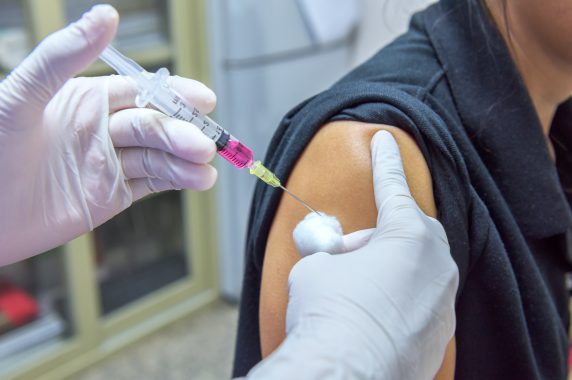GP contract would include MMR vaccinations under PHE proposals

GPs could see measles, mumps, and rubella (MMR) vaccination catch-up elements added to the GP contract, in an effort to tackle low uptake levels.
The proposals, put forward by Public Health England as part of its measles and rubella elimination strategy for 2019, also included adding a set of uptake indicators for older age groups to the quality and outcomes framework (QOF).
But GP leaders argued increasing the pressure on GPs would not ‘make any real difference’ and called on PHE to focus on overcoming public ‘skepticism’ about the vaccine instead.
Last year, NHS Digital found the number of children getting the MMR vaccine dropped to its lowest level since 2011/2012.
PHE said in response to low uptake, older age cohorts (over five years) should be targeted through opportunistic and targeted catch-ups.
The report said: ‘The immunity gap for England and London is most pronounced for the cohorts born between 1998/99 and 2003/04 (aged 15 to 20 years in 2018).
‘Unless these immunity gaps are addressed through the strategies outlined below England will continue to remain vulnerable to measles outbreaks particularly in age cohorts with the highest susceptibility and areas and communities with the lowest coverage,’ it added.
To improve uptake in this group, the PHE strategy said: ‘Explore including additional MMR catch-up elements in the GMS contract and develop relevant indicators for QOF.’
However, no more detail was provided on how this would be done.
Although the World Health Organisation (WHO) confirmed the UK eliminated measles and rubella in 2015 and 2016, PHE stressed this only means the disease is no longer active in the UK but not that it has been completely wiped out.
In order to do this, both doses of MMR need be at the required 95% target. And while the first dose is at this level, the second is not.
Meanwhile, a review of primary care workforce gaps to address any shortages, especially in practice nurses, school immunisers and health visitors, should be carried out to improve uptake in under fives, the report said.
PHE and NHS England are now working with local authorities and CCGs to decide whether the proposals will be followed through.
But BMA GP committee chair Dr Richard Vautrey said putting more pressure on GPs to increase vaccine uptake completely misses the point.
Commenting on the QOF proposal, Dr Vautrey said: ‘I think it is unlikely to make any real difference. The reality is that there is a big campaign needed to convince parents of the benefits and importance of MMR vaccines. The real challenge is overcoming their skepticism and that’s where the focus needs to be placed. Not on creating more difficulty for practices.’
‘GPs already try their hardest to encourage people to get immunised. We need a wider societal approach,’ he added.
However, Dr Vautrey did welcome plans to address gaps in the number of nurses and health visitors, saying this would help increase communication between doctors and parents, making it easier to educate them on the importance of vaccinations.
PHE head of immunisation Dr Mary Ramsay said: ‘Our achievements to date are a testament to the hard work of health professionals in the NHS. But, if we wish to build on our successes, and sustain measles and rubella elimination for future generations action needs to be taken now.’
Visit Pulse Reference for details on 140 symptoms, including easily searchable symptoms and categories, offering you a free platform to check symptoms and receive potential diagnoses during consultations.









